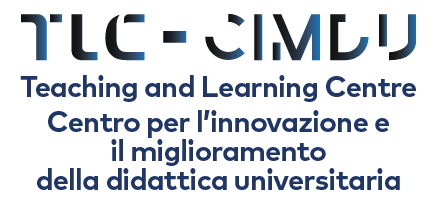Progetti di Dottorato di ricerca su tecniche EPR avanzate da realizzare presso l'Università di St. Andrews, Scozia
Posizioni di dottorato di ricerca
Deadline < Settembre 2017
Three competition-funded EPR PhD projects.
PhD1 - Extending the precision of nanometre distances by pulse dipolar EPR spectroscopy
We are seeking a highly motivated individual interested in an interdisciplinary PhD project in the laboratory of Dr Bela Bode. The project aims at extending the method of pulsed dipolar EPR spectroscopy which allows measurement of nanometre distances between paramagnetic spin probes. The main target is to deepen our understanding of different adverse effects limiting the resolution of the measurement and improving the quantitative analysis of experimental data. The project involves the preparation of organic and inorganic model compounds and their analysis and transferring the insights gained to state of the art structural research in the nano- and biosciences through local, national and international collaborations.
The EPR infrastructure available in St Andrews is truly world-leading (a Bruker EMX cw-X-Band, a Bruker E580 pulse X-Band, a Bruker E580 pulse X/Q-band hybrid (1kW/150W) and a home-built high power pulse W-band (HIPER)). Further information can be found at https://www.findaphd.com/search/ProjectDetails.aspx?PJID=68273
PhD2 - Understanding the structure and dynamics of carbohydrate processing enzymes
This collaborative project between the laboratories of Dr Tracy Gloster and Dr Bela Bode (both St Andrews) aims to trace the global conformation of a carbohydrate processing enzyme during catalysis by nanometre EPR distance measurements made possible by site-direct mutagenesis and site-specific spin labelling. This project aims at establishing a platform for understanding large changes in protein conformations during biocatalysis using EPR methodology and is offered in the EPSRC Centre for Doctoral Training in Critical Resource Catalysis (www.criticat.org). Application deadline is 4th January 2017.
Summary: The project aims to understand how the structure and dynamics of carbohydrate processing enzymes relate to function. The main focus will be a human enzyme for which the function and physiological purpose are unknown. Whilst its hydrolytic activity on synthetic substrates has been well characterised, we have evidence that it also catalyses an unusual transfer activity leading to the formation of novel modified sugars. Once the process is better understood, there may be possibilities for engineering the enzyme to exploit this activity, potentially leading to synthesis of molecules of industrial relevance. The enzyme comprises two domains, and as yet the cross-talk between the two domains is not understood. We aim to understand the enzyme structure dynamics in solution using a combination of X-ray crystallography and electron paramagnetic resonance, and how this impacts the function and catalytic capability of the enzyme. The project will be highly multi-disciplinary, combining molecular biology, biochemistry, X-ray crystallography, spectroscopy and enzymology.
Keywords: Biocatalysis, enzymology, structure, X-ray crystallography, electron paramagnetic resonance
PhD 3 - Fully deuterated systems for the investigation of membrane protein structure by EPR
This collaborative project between the laboratories of Dr David Norman (Dundee) and Dr Bela Bode (St Andrews) uses total system deuteration for the study of membrane proteins. The project would involve the use of fully deuterated lipids, isolated from fully deuterated E.coli paired with Nano-disk technology (with the scope of fully deuterating the Nano-disk forming girdle proteins) to study relaxation in spin-labelled, fully deuterated membrane proteins. The project would also take advantage of state of the art pulse forming technologies to maximize the relaxation time and sensitivity. The postgraduate will be trained in state of the art biochemistry and molecular biology preparing the spin-labelled protein complexes which will be scrutinised by pulse EPR distance measurements and modelling. For a detailed description see: http://www.eastscotbiodtp.ac.uk/fully-deuterated-systems-investigation-membrane-protein-structure-epr.
Please note BBSRC eligibility requirements (UK nationals and EU nationals resident in the UK for 3+ years). The deadline for applications is the 5th of December 2016.
Informal enquiries about all three projects can be made to Dr Bela Bode (beb2@st-andrews.ac.uk).





























